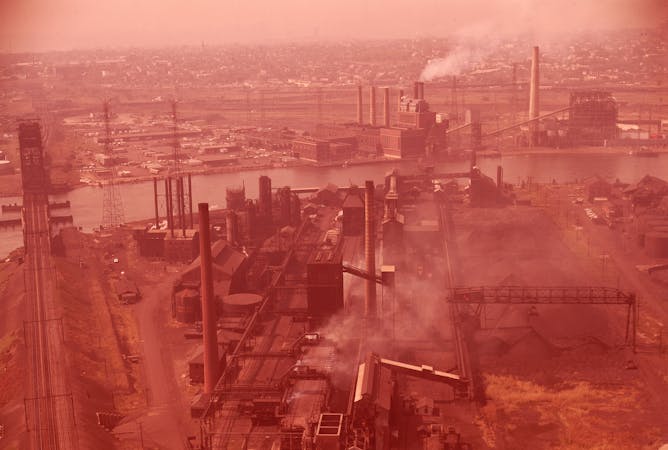|
|
|
|
Happy Sunday − and welcome to the best of The Conversation. Here are a few of our recently published stories:
Journalism organizations across the world, including ours, are urgently wrestling with what kind of policy approach to take to artificial intelligence. Generative AI programs like ChatGPT are increasingly being used by students, lawyers, real estate brokers and countless others to help them write essays, prepare briefs and entice homebuyers, among other things. News organizations are also beginning to experiment with AI in the creation of stories, sometimes with amusing or even alarming results.
High-profile generative AI programs are only the tip of the proverbial iceberg, though. The core concepts of artificial intelligence are spreading widely in everything from self-driving cars to apps that determine your creditworthiness.
But, writes cyber intelligence expert Mark Bailey, there’s a problem that undermines them all: trust. “Many of their inner workings are impenetrable, making them fundamentally unexplainable and unpredictable,” Bailey writes in a piece edited by tech editor Eric Smalley. That’s one reason the Department of Defense requires that a human be “in the loop” for all AI-based decision making.
His story is worth a read as we as a society ponder how best to handle the transformative power of artificial intelligence.
|

|
Bryan Keogh
Managing Editor
|
|
Readers' picks
|

Do you trust AI systems, like this driverless taxi, to behave the way you expect them to?
AP Photo/Terry Chea
Mark Bailey, National Intelligence University
People can trust each other because they understand how the human mind works, can predict people’s behavior, and assume that most people have a moral sense. None of these things are true of AI.
|
|
|
-
Zhiyong Yang, Miami University
Big-spending Chinese tourists once buoyed the global travel industry. But with Chinese economy looking a little shaky, more are staying at home.
-
Clark D. Cunningham, Georgia State University
The founders of the United States viewed impeachment as a way to remind the country and president that he is not above the law and to deter abuses of power.
-
Michael Jaffe, Mississippi State University; Tracy Jaffe, Mississippi State University
Animals often give birth to litters of more than one offspring at a time. But are those babies twins?
-
Jaime Toro, West Virginia University
A geologist explains where earthquakes are most common and why.
|
|
Editors' picks
|

Activists in Newark, N.J., offer tours that teach visitors about the city’s legacy of industrial pollution and environmental racism.
Charles Rotkin/Corbis via Getty Images
Elizabeth Kryder-Reid, Indiana University
Societies celebrate heroes and commemorate tragedies. But why is there so little public acknowledgment of environmental disasters?
|
|
|
-
Peter Kastor, Arts & Sciences at Washington University in St. Louis
Politics, age and gender combine to shape the understanding of presidents’ families – and the presidents themselves.
-
Abbey Stockstill, Southern Methodist University
A scholar who has been working in Marrakech writes about the artisan communities, which have maintained the city’s architectural rich heritage for generations and have been hit hard by the earthquake.
-
Gabriel Eckstein, Texas A&M University; Clive Lipchin, Tel Aviv University; Sharon B. Megdal, University of Arizona
Arizona is considering a multibillion-dollar desalination project to address its urgent water needs. Three water experts call for a go-slow approach and point to Israel as a role model.
-
Maha Nassar, University of Arizona
A famous gesture kick-started hopes of peace in the Middle East. But today, the idea of a two-state solution seems further away than ever before.
|
|
The Conversation Quiz 🧠
|
-
Fritz Holznagel, The Conversation
The CDC and the GOP, earthquakes and handshakes, lionfish and suncreen and bourbon, oh my.
|
|
|
|---|
-
More of The ConversationLike this newsletter? You might be interested in our weekly and biweekly emails: Trying out new social media? Follow us: -
About The ConversationWe're a nonprofit news organization dedicated to helping academic experts share ideas with the public. We can give away our articles thanks to the help of foundations, universities and readers like you. |
|
| |
| |
| |
| |
|
|
|
|
|
|
|